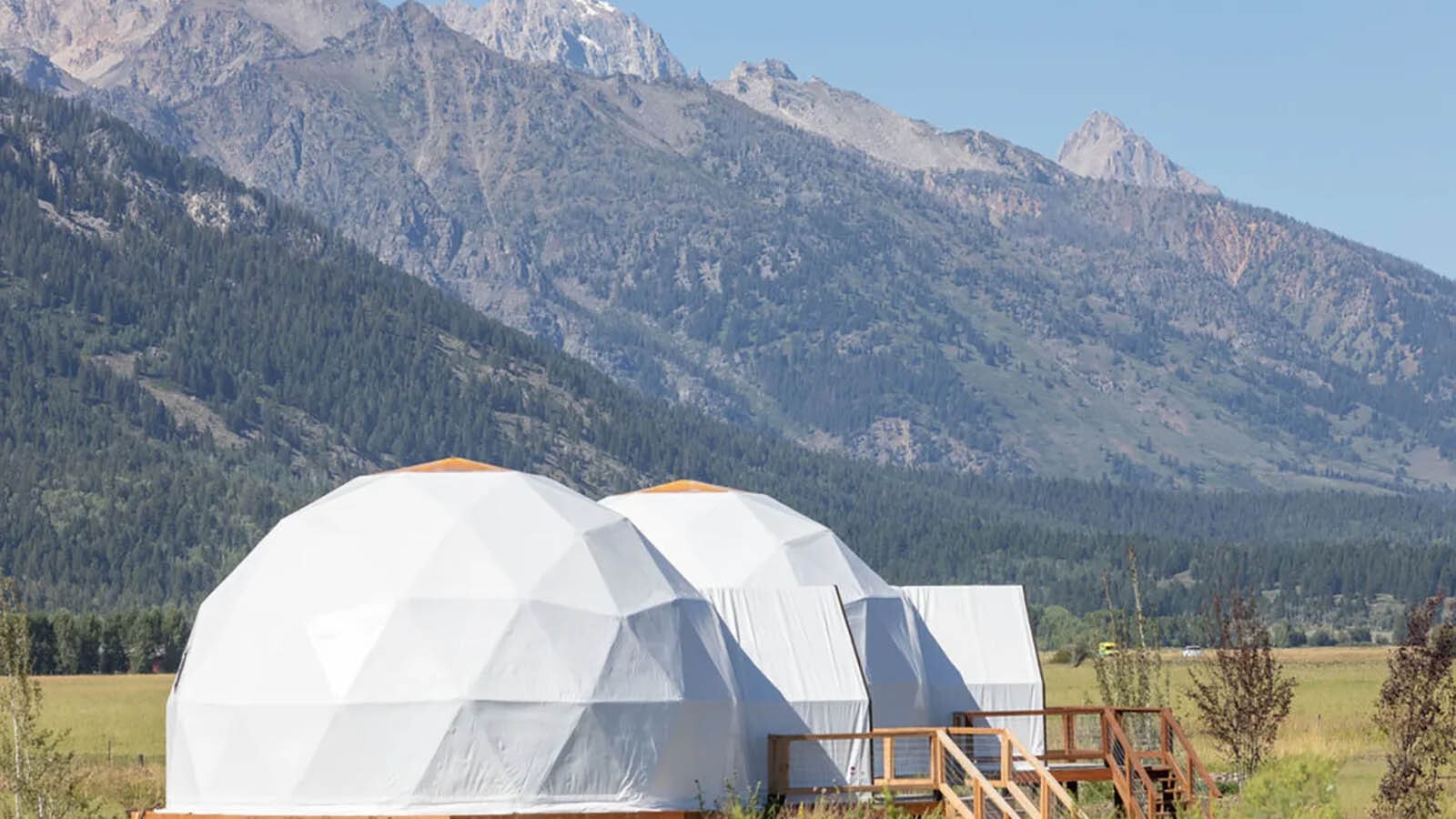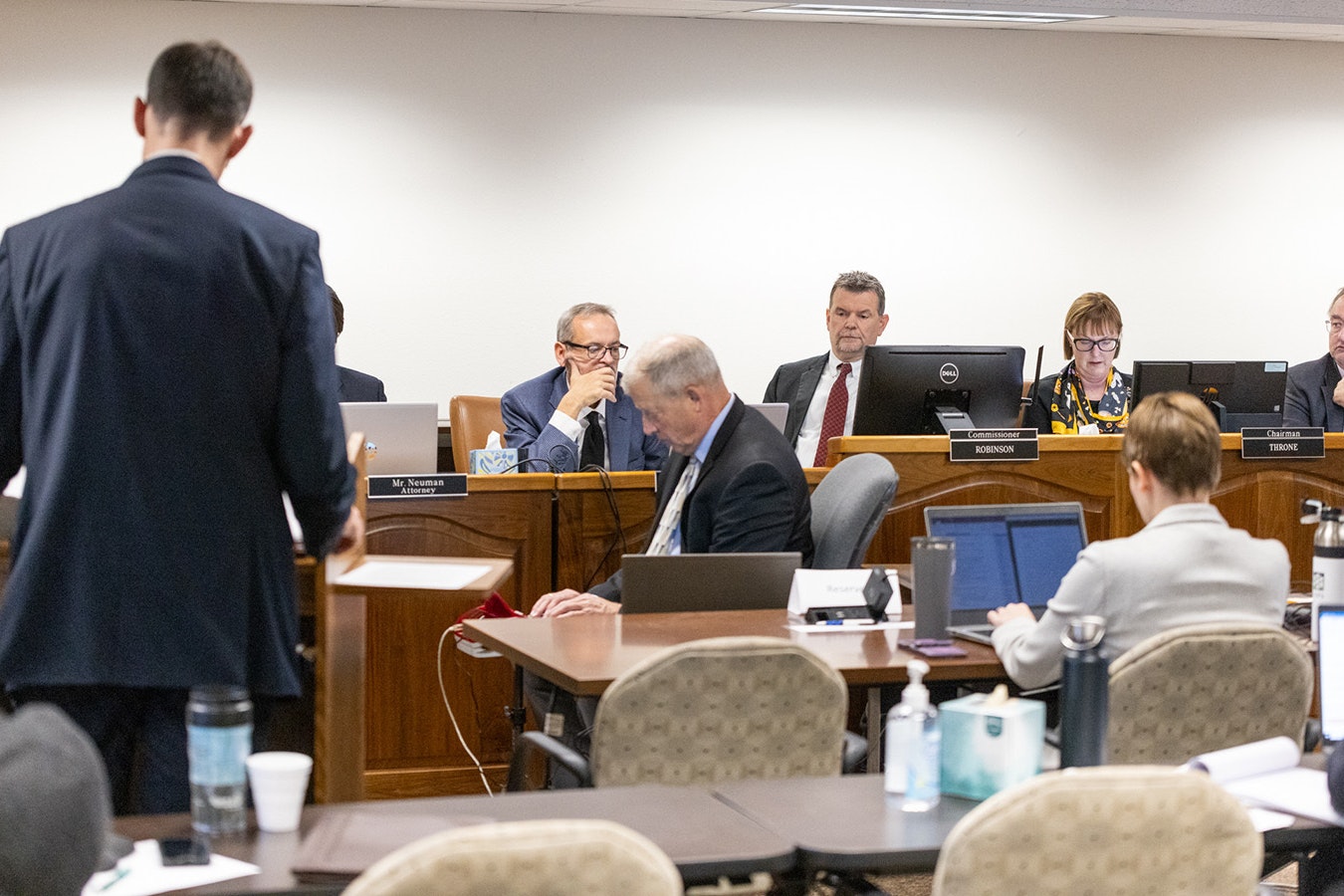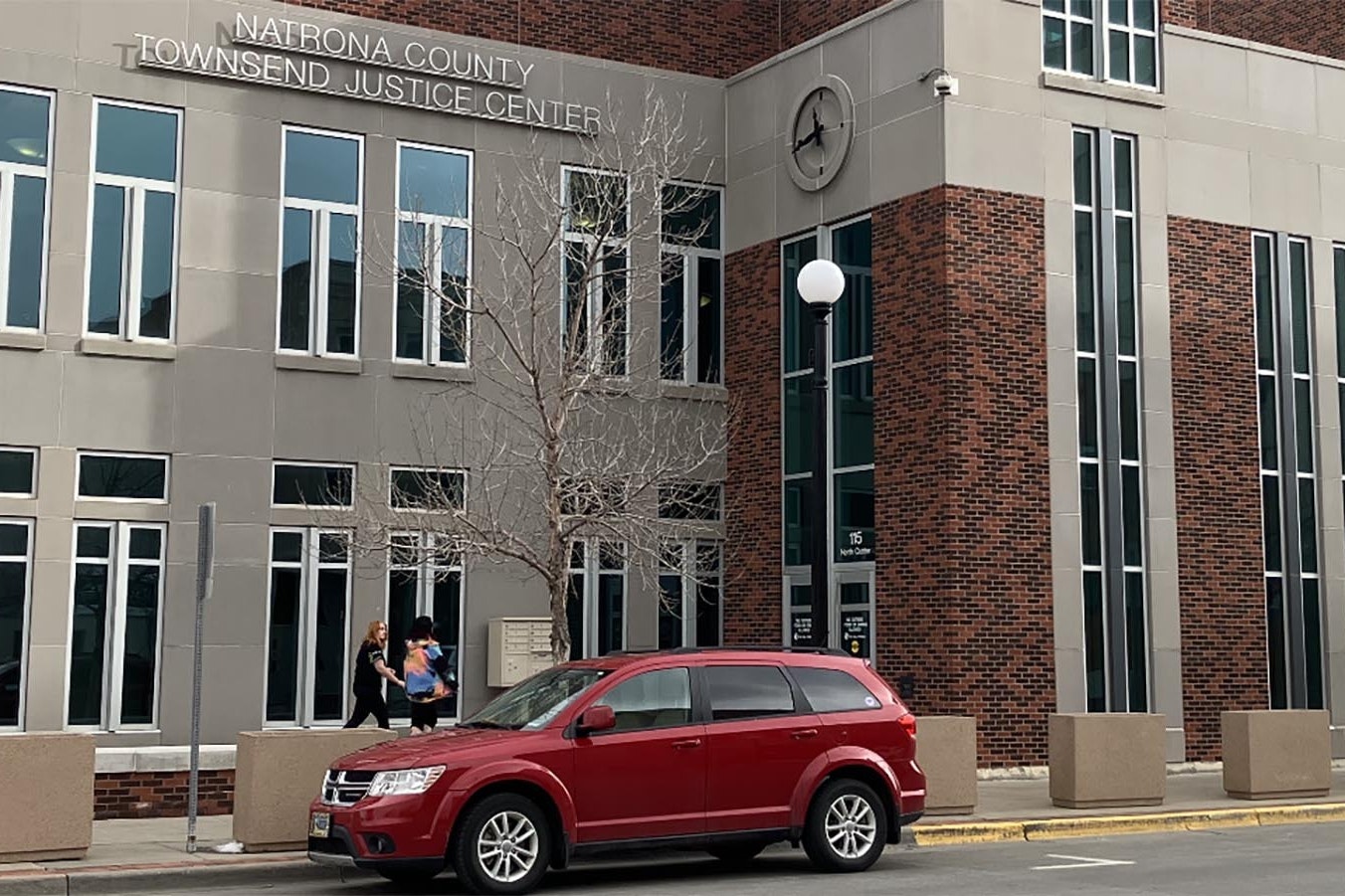A judge called it “troubling” Monday that the state of Wyoming can go around Teton County’s land use regulations to temporarily install a glamour camping complex on some of the most expensive land in the nation — but state law allows for it.
Serving in a district-court-judge capacity, retired Wyoming Supreme Court Justice Michael K. Davis judged this case in the state’s favor Monday, but kept the “glamping” developments paused in light of an “almost certain” appeal to the Wyoming Supreme Court.
“It is of great concern that a state agency could be the final judge of its own actions, free of any judicial review,” wrote Davis in his order, “particularly when the county has carefully regulated the use and development of the very valuable and limited amount of private land available within its boundaries and has procedures to fairly enforce its regulations.”
Please No Glamping
The Wyoming Board of Land Commissioners sued Teton County’s board of commissioners Dec. 21, 2022, asking the Laramie County District Court to block the county from enforcing its rigorous land-use restrictions against businesses that have won permits to develop on state trust lands.
Wyoming has about 3.5 million surface acres and 3.9 million mineral acres of trust lands set aside for government revenues. The bulk of those lands, about 86%, are designated to fund public schools in all 23 counties, according to court documents.
The dispute stems from the state lands board issuing permits in June 2022 to two businesses to use parcels south of skiing community Teton Village for up to five years.
One permit went to Wilson Investments LLC to build a storage facility and landscape construction yard on 9.7 acres. The other went to Basecamp Hospitality LLC to install geodesic domes for glamor camping, commonly called “glamping,” 4.76 acres.
The county fired back in November 2022, sending notices of abatement to both businesses and the state board, claiming they were breaking seven county land regulations.
For example, the county accused Basecamp of essentially operating a hotel that was poised to pollute the nearby Fish Creek with its septic system. Putting septic facilities there is not a “temporary” construction despite the state’s claims that these were only temporary use permits, the county argued.
And The Issues
The state argued that it didn’t waive its sovereign immunity, so the county couldn’t enforce its land use regulations against it.
Another issue Justice Davis had to consider was whether the two permitted companies would share the state’s immunity, since the state was their landlord in this situation.
The state has not waived its sovereign immunity protection from being sued for issuing temporary use permits on state trust lands, regardless of the county in which those lands fall, the order says.
What The Law Says
People can sue the state government, but only in ways state law specifies.
Counties have the authority to pass land use and development regulations within their borders, Wyoming law says.
On the other hand, the Wyoming Constitution gives the state lands board authority to manage all aspects of trust land.
One state statute requires those who lease from the state long-term to comply with all land use, planning and zoning laws in place. But these leases were categorized as “temporary,” not long-term, and the state board has given itself authority to issue temporary use permits, with its own rules.
Davis hinted that the state board used silent areas in state law, and its own rules, to push the potentially lucrative development into place in the wealthy county despite restrictions from local county-level land use regulations.
“The result in this case is troubling,” wrote the retired justice. “The court cannot shake the conviction that the board utilized temporary use permits to avoid whatever requirements (the statute) and the board’s own regulations imposed on it to comply with local land use regulations and procedures when it leases state trust land.”
All the county can do to redress the practical violation of its land use regulations is engage in “politics” — ask the state Legislature for a law change, or ask the state board to stop allowing these developments, says the order.
Lastly, the county can’t enforce its land use regulations against the two permitted companies, essentially because the state is their landlord.
“Perhaps there should be (such a law),” wrote Davis. “But there is not.”
Clair McFarland can be reached at clair@cowboystatedaily.com.





